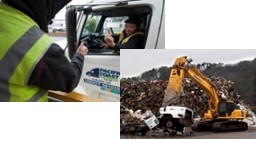Port of Seattle – Clean Truck Program Grant Administration, Project Controls and Auditing Services
Description

The Implementation of the program, also known as Scrappage and Replacement for Air in Puget Sound (ScRAPS2), is through another entity in partnership with the Port. The program provides financial incentives to eligible truck owners to promote replacement of 220 or more, older drayage trucks that serve the Port’s marine terminals to meet federal engine-year 2007 emission standards by January 1, 2018.
P&M services include but are not limited to the following:
- Grant Administration
- Review contracts/inter-local agreements, grant documents and grant agency process manuals and develop grant administration manuals
- Review and recommend any needed changes to the scrapping program work plan by the truck outreach center to ensure compliance with all federal and state grant related requirements
- Review lessons learned of related grant programs for incorporation into the guidelines and audit process
- Maintain Grant management files in Port office in a ready-to-audit condition on a weekly basis
- Manage all grant closeout activities
- Project Controls
- Provide weekly updates to the Port Program Manager on project status based on field audits
- Auditing Services
- Conduct on-site compliance audits to collect and/or verify (1) level of activity at the truck outreach center; (2) process for documenting applicant eligibility, the process and files for truck incentives recommended for issuance; (3) relevant backup documentation for Port’s project file; weekly audit reports; (4) recommend any needed changes to the truck scrapping program procedures
Responsibilities
In February 2014, P&M as a Prime Consultant was hired to assist the Port of Seattle Seaport Division in implementing its Clean Truck Program truck scrapping/replacement project with grant administration, project controls and auditing of the Truck Outreach Center to ensure compliance with Port of Seattle protocols and granting agency regulations. Funding is provided by the Federal Highway Administration (FHWA), Washington State Department of Ecology (WSDOE), US Environmental Protection Agency (USEPA) and the Port of Seattle.
Project Duration
Feb 2014 to April 2017 (the support for this program continued with the Puget Sound Clean Air Agency from 2016 – 2017)
